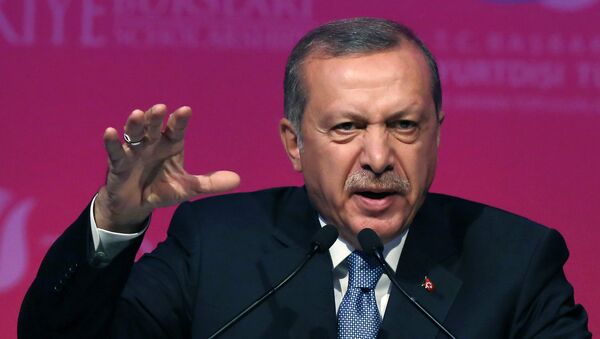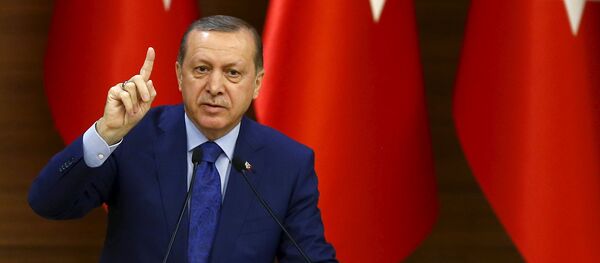Following the resignation of Prime Minister Ahmet Davutoglu, whom many in the West saw as the more liberal face of the Turkish government, Erdogan has increased his paranoid rhetoric. During a speech in Ankara, he called the EU a "safe haven for political wings of the terrorist groups," reiterating his displeasure with Brussels, a city that permits protesters, including those of Kurdish descent, to set up tents in front of the European Union headquarters.
The Turkish president seeks, almost to the point of demanding, that the EU allow visa-free travel for Turkish citizens. This demand was met in the EU with a demand to change Turkish law, in particular, that which specifies Ankara's definition of terrorism.
Erdogan, currently at war with Kurds (including the PKK, or the Kurdistan Workers Party) in his own country who have been fighting for an independent Kurdistan for some 30 years, is reluctant to change terrorism laws, as it would diminish his executive powers, including those he invokes to silence dissent among journalists and academics critical of his administration.
The EU, the United States and Turkey consider the PKK to be a terrorist group. The EU has allowed for PKK sympathizers to set up a tent camp in Brussels, later refusing to move them after increasingly angry demands by Erdogan.
"It's a piece of black comedy that the EU criticizes our country over the definition of terrorism," the beleaguered president said.
The current dispute began when the EU addressed Turkey in what is now known as the EU-Turkey migrant deal, asking Erdogan to take back all asylum seekers that transited Turkey on their way to illegally cross European borders. Erdogan sought favors, one of which was the visa agreement. Remarkably, the outcome so far is neither a solution to the EU migrant crisis, nor visa-free travel for Turks, but instead a rapidly descending spiral of diplomatic claims and counter-claims.



